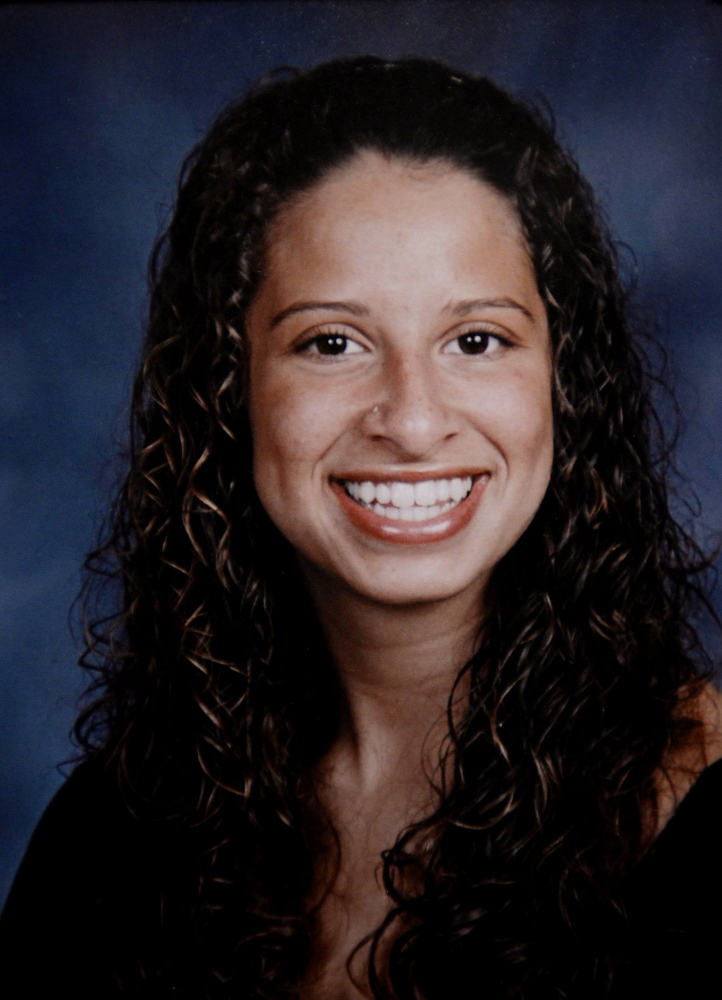Cory Girard of Yarmouth was sentenced Thursday to serve 18 months in prison for illegally having a pistol in a Portland apartment when he and his ex-girlfriend were shot in 2010, resulting in her death.
Girard, 27, stood in U.S. District Court in Portland during the sentencing hearing and apologized to his family and friends who were there to support him and to the parents of the late Darien Richardson, seated in the back of the courtroom.
“Every day, I have this guilt on my shoulders,” Girard said. “It’s almost a relief to get sentenced.”
Judge D. Brock Hornby allowed Girard to remain free on bail until Feb. 26, when he must report to federal prison to begin serving his sentence.
Although authorities say Girard played no role in the shooting on Jan. 8, 2010, that led to Richardson’s death, police have said from early on that the shooting was related to Girard’s illegal business at the time as a drug dealer.
Portland police have continued to investigate Richarson’s cold-case murder for years. Early on, Girard was uncooperative. But after being arrested on Nov. 19, 2014, on the federal charge of possession of a firearm by an unlawful user of controlled substances, Girard began cooperating with detectives working on Richardson’s case.
“After he was charged, he provided a level of cooperation to state and local authorities. That resulted in legal processes that moved the (murder) case forward slightly,” Assistant U.S. Attorney Darcie McElwee said after Girard’s sentencing.
McElwee argued during the sentencing hearing that Girard’s illegal business selling drugs is what led him to interact with other drug dealers, who Portland police suspected in the shooting.
“This was incredibly reckless and unfortunately dangerous behavior that resulted in a tragedy,” McElwee said.
Richardson, 25, initially survived wounds to her thigh and hand, but died unexpectedly on Feb. 28, 2010, while visiting a friend in Miami, from a blood clot caused by her wounds. No suspect has ever been named in the shooting. Girard was shot in the arm.
Girard’s pistol was a .45-caliber semi-automatic, the same caliber weapon used to shoot him and Richardson, but authorities have determined that Girard’s was not the gun used.
At the time of the shooting, Girard was dealing “large amounts” of oxycodone between New York and Maine, McElwee wrote in a prosecution document filed with the court.
“The firearm was seized by the Portland police from the bedroom on the night of the shooting. Also seized from the bedroom that same night were approximately 193 counterfeit 80 mg Oxycontin pills and approximately 2.7 grams of marijuana,” McElwee wrote. “On about Jan. 8, 2010, the defendant was a daily user of marijuana and had been since the time of the firearm purchase in October 2009, having smoked marijuana as recently as the night of the shooting.”
Girard pleaded guilty to the charge last Oct. 1.
Hornby also sentenced Girard to serve three years of supervised release following completion of his prison term.
The judge listened during the hearing as Girard described overcoming his addiction to opiates a couple years after Richardson’s death and how he has turned his life around since then, reconnecting with his friends and family.
“I have my values back. I have my family back. I have my friends back,” Girard said. “I am the man I want to be.”
Girard’s sister, Jayme Girard, also spoke at the hearing, describing her brother as a “completely different person” now than he was at the time of the shooting.
Hornby warned of the danger of firearms and drug dealing, but he also wished Girard luck with his life after serving the prison sentence.
“It’s often said that drugs and weapons are a recipe for disaster,” Hornby said. “Here’s the case that proves what the combination of drugs and weapons can do. You purchased this weapon you had because you thought you needed the protection because of the activities you were involved in.”
Richardson’s parents, Judith and Wayne Richardson, attended the hearing, but did not speak. They declined to comment through a victim/witness coordinator before leaving the courtroom.
Send questions/comments to the editors.



